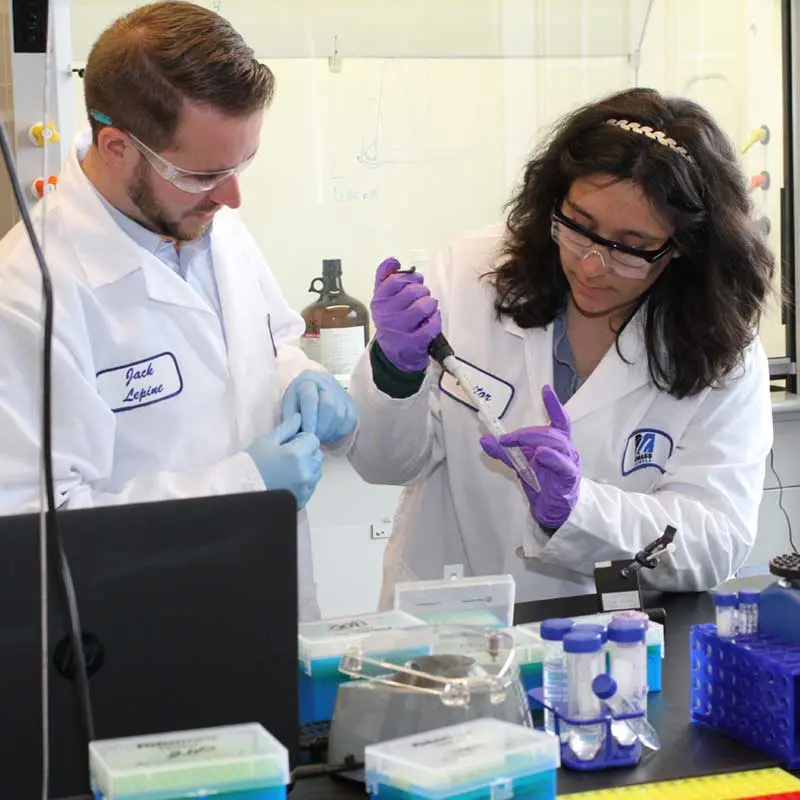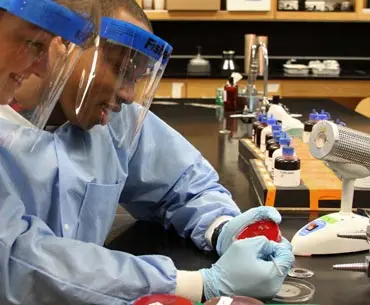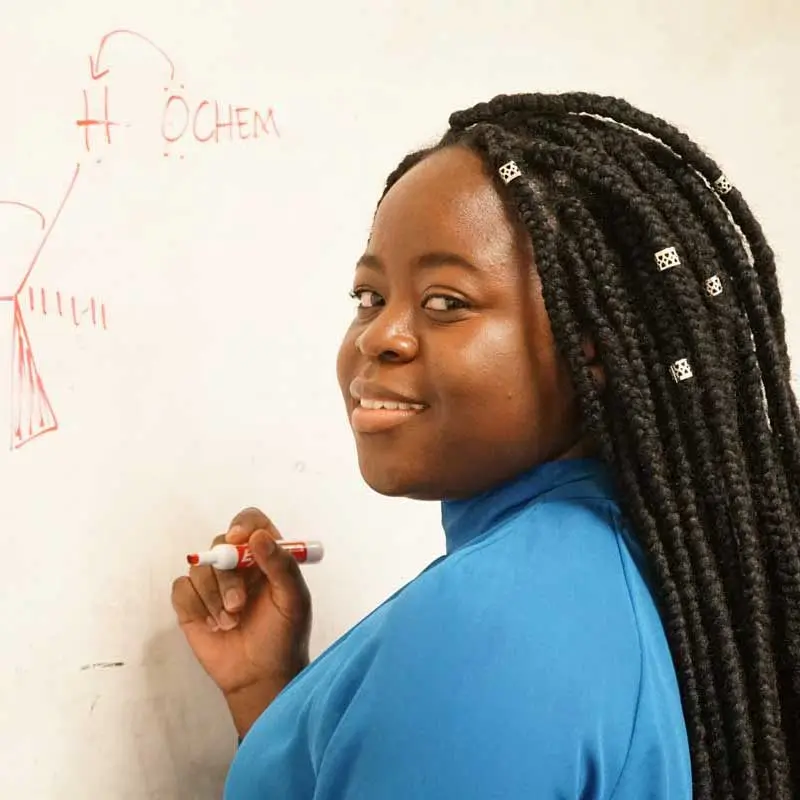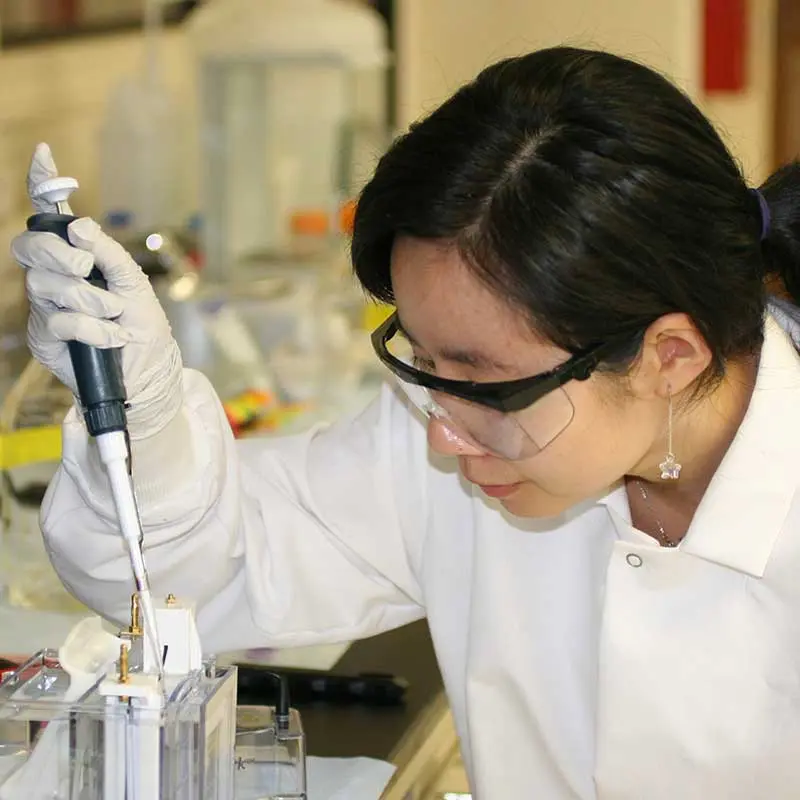What courses will you take?
The B.S. in Biological Sciences offers several degree options, which lead to a wide range of career opportunities.
- General Biology Option — Gain a broad foundation in the biological sciences, and customize your curriculum by selecting advanced course electives that match your interests and career goals. This option provides all the requirements for students pursuing health professions. Courses for the General Biology Option
- Bioinformatics Option — Take basic biology and computer science courses, along with advanced courses in bioinformatics and biology electives. You will graduate prepared for professional or academic careers in bioinformatics, comparative genomics, proteomics, molecular modeling, and biological database analysis and management. Learn more about the Bioinformatics Option and courses
- Biotechnology Option — Take a set of advanced courses designed to provide the conceptual background and practical training needed for a career in biotechnology, genetic engineering, bioinformatics, industrial microbiology, cell culture technology, and the manufacture and purification of diagnostics and other biologically relevant materials. Learn more about the Biotechnology Option and courses
- Ecology, Evolution and Organismal Biology Option — Gain a strong foundation in the basic sciences of biology, chemistry and physics, as well as advanced courses in ecology, evolutionary biology and environmental biology, functional comparative biology and biomechanics. You will be ready to launch a career or graduate study in such fields as ecology and evolution, environmental biotechnology, conservation biology, public health, toxicology, bioremediation and biological assessment of environmental quality. Learn more about the Ecology, Evolution and Organismal Biology Option and courses
- Pre-Medical/Pre-Health Option — Take all the necessary prerequisite courses to apply to medical, dental, veterinary, optometry, pharmacy and podiatry schools, as well as physician assistant programs. The program offers a strong foundation, with basic courses in biology alongside a variety of health-related biology electives. Learn more about the Pre-Medical/Pre-Health Option and courses
In the senior year, you can choose to conduct a research capstone project. Many research projects lead to student-authored publications in professional journals and presentations at scientific meetings.
Visit the Academic Catalog for a complete course listing and to learn about the Biology minor.










